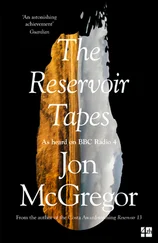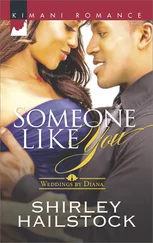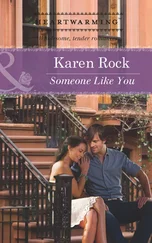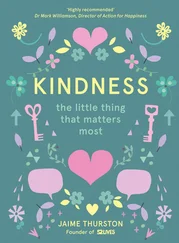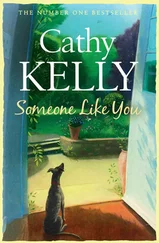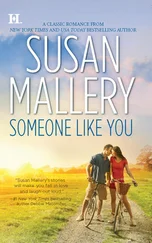No, it’s okay, he’d said. It was a while ago now. These things happen, you know how it is. He’d made a face, a sort of knowing frown, as if to say I’d rather not go into details but I’m sure you can guess. She wasn’t sure that she could. The thing kind of got out of hand in the end, he’d said. The moment had kind of passed. She nodded slowly, in a way which she hoped looked like sympathetic recognition. You got children? he asked.
No, she said, no I haven’t.
He looked like he was waiting for her to add something, but she didn’t. Because what would she have said. Because what else was there to say.
The other people on the tour had all been younger than her and Wade, and she’d wondered how it was that young people these days seemed able to travel anywhere in the world that took their fancy. This was just one holiday among many for them, and the ones who didn’t know each other already were asking about it; none of them saying where you from? , she noticed, but rather where you been? and where you headed? One of them, a tall American girl in a sleeveless top and a pair of sensible walking shorts, all long brown limbs and neat blonde hair, had turned to Wade and said hey how’s it going , as the tour guide led them through the garden to the next talking point, and Wade had said hey, good, thanks in reply. Leaving Elizabeth a bit stranded as they started a conversation of their own.
It was a beautiful garden. There was a lake, a large pond really, with a low arched bridge at one end, and a pebbled shore, and a stream winding down towards it from a stand of bamboo. There were the usual clipped and twisted trees, and carefully placed rocks, and mossy seating areas. The whole garden felt natural and artificial at the same time, and she wondered if there were hidden meanings to the arrangement which you were meant to decode. She’d wanted to say something to Wade about it, but he’d still been talking to that girl, asking her where the best temples in Cambodia were — the girl had been to Cambodia, of course — and she couldn’t catch his eye. She’d waited for them to finish their conversation, and when she’d realised she’d been standing there too long she’d moved away a little, looking at the bridge on the far side of the lake, looking at the tour guide, looking at the palace buildings and the other people in the group. Because it didn’t matter if he wanted to talk to someone else. Because why would that matter to her. She stood off to one side, holding his camera, waiting. Like some sort of she didn’t know what. Spear-carrier. Spare part.
That girl though. It must be sunny all the time where she was from, judging by how tanned those long slim limbs were, the carefree freckles on her face. She must have never lost a night’s sleep over anything, she’d thought, and been surprised by her own bitterness. Because was this who she’d become, already. She tried to remember, and she couldn’t, when she’d last been able to wear shorts, or anything without sleeves.
What sort of a name was Wade anyway, she’d found herself thinking.
So, please, the guide had said then; please, this is Oh-ga-ku-mon-jo . In festival times poetry recitals would be held here, she’d said, and gestured towards a painted silk screen in an open room behind her. The painting showed a group of finely dressed courtiers sitting cross-legged in a garden, and the guide had explained that this was the garden they were standing in now. If you look, these courtiers are sitting beside stream, she’d said; and this is same stream here, with same group of three rocks also.
She just didn’t know her way around this sort of thing, was the problem. She wasn’t familiar with the territory. She couldn’t read the situation, if there was ever a situation to read. Patricia had told her once that she was better off without a man, that she couldn’t imagine the trouble they caused. Elizabeth assumed she’d meant well, but she really hadn’t appreciated it. She’d said, Patricia, if I want your opinion on my private life I’ll ask and until then I’d rather not have that sort of comment thank you. Which Patricia hadn’t responded to, but when she’d refilled the paper tray on the photocopier she’d slammed it so hard that Elizabeth had been surprised it didn’t break.
At these poetry recitals there was a particular tradition, the guide had continued, gesturing towards the painted screen again; there would be small cups of sake in folded paper boats floating down from the top of the stream. And aim was to invent short poem on given subject before boat reaches you, she said; if you could not think of poem quickly enough then you were not permitted to drink sake, you must allow boat to pass by.
Which would be enough to make you never want to go to a garden party again, she’d thought. Being put on the spot like that. Watching the little paper boat wobble past you and not being able to think of a thing to say. Because it would feel sort of exposed, something like that.
The tour guide had smiled then, and asked if there were any questions, and led the group off towards the last point of the tour. Elizabeth had hung back for a moment, looking at the painted screen, the four figures seated on the moss around the stream. They were so plump it was difficult to see if they were men or women: their long black hair coiled around their heads, their kimonos folded richly around them. They didn’t look nervous. They didn’t look as if they’d have trouble thinking of something witty and poetic in the short time they had, reciting their lines, reaching out to take the cup before the paper boat had passed them, before it folded and crumpled into the water and the sake spilt away downstream.
Wade had been waiting for her at the exit, smiling. I was starting to worry about you, he said. Which, she hadn’t known what to say to that. And then he’d said, so, I guess that’s us, isn’t it?
Yes, she said. I suppose it is.
He’d lowered his head to take her camera from round his neck, and for a moment she’d thought he was bowing in the traditional Japanese style, and she’d started to bow in return before she’d realised he wasn’t at all. And she was sure he’d noticed, but he didn’t say anything. Which stuck in her mind, because some people would have laughed at her right there. But he didn’t laugh. He shook her hand again, and said goodbye, and see you around, and take care, and then he kept talking. He asked if she was going straight back to work when she got home, what she wanted to do if she didn’t want to be a secretary for ever, and she said I don’t know, teach? Which had been funny somehow. She asked him how long he thought he’d be between jobs for, if he was planning to stay in Minnesota. I think I will, he said, I feel like it’s where I belong now. It’s beautiful country round there, he said, and she’d been surprised by the feeling with which he’d said it; had tried to imagine ever feeling that way about Gainsborough or Lincolnshire or anywhere she lived. You ever been? he asked. To the States? she said. No, to Minnesota, he said, to Duluth, and she smiled and said, well anyway no, neither. You should come over sometime, he said. You’d like it.
Which was when Patricia would say she should have said something, just then. When she got home and told her about it. But she said nothing, only goodbye and take care and see you around.
And she decided, as she stood in the deep green shade of a cypress tree and listened to his footsteps crunch away along the gravelled path, to go back and have another look at the palace garden. She wanted to get a picture of the stream, and the rocks, and the small stand of bamboo trees. If she was quick she could get back in before the palace guides closed up, before they locked the gates and put out the No Entry signs and asked her to come back and try again another day.
Читать дальше
Конец ознакомительного отрывка
Купить книгу
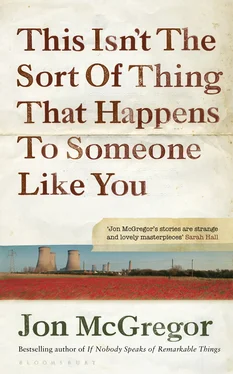
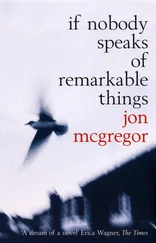


![Нил Уолш - Единственное, Что Имеет Значение [The Only Thing That Matters]](/books/393630/nil-uolsh-edinstvennoe-chto-imeet-znachenie-the-onl-thumb.webp)
